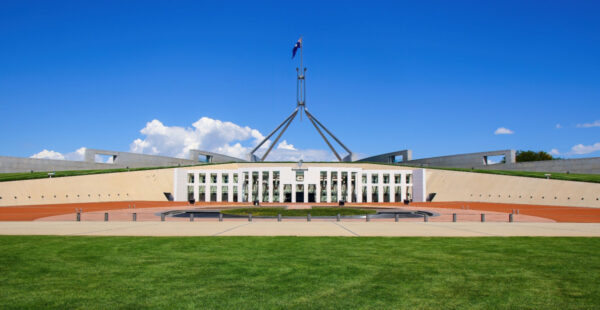Pessimism prevails in latest Global Risk Report as cost-of-living fears grow

The global cost-of-living crisis, increasingly extreme weather events, and active mis- and disinformation campaigns are, according to global risk experts, among the biggest short-term risks to economic and nation-state stability worldwide, a new report by the World Economic Forum (WEF) has revealed.
As part of its latest Global Risks Report 2024, in its 19th edition, the WEF singled out ‘misinformation’ – the spreading of false information, with or without an active intent to mislead – and ‘disinformation’ – the deliberate dissemination of misleading and manipulated ‘facts’, or propagandised falsehoods – as top risks to global stability over the short term.
Extreme weather also ranks as a key threat to global stability, with two out of three experts rating it as the number one risk over both the two-year and ten-year horizons.
Pessimism colours much of the WEF report, with risk experts providing an overwhelmingly negative outlook for global stability over the short term – one the global forum believes will “worsen over the long term”.
“These results point to a global risks landscape where economic, geopolitical and societal vulnerabilities will continue to build,” the WEF wrote. “Worrying developments emerging today have the potential to become chronic global risks over the next decade.
“As constant upheaval becomes the norm, decades of investment in human development – and human resilience – are slowly being chipped away, potentially leaving even comparatively strong states and individuals vulnerable to rapid shocks from novel and resurgent sources.”
Cost-of-living crisis
The global cost-of-living crisis remains a major concern in the 2024 report, rated by 46% of experts as a prevailing threat to global stability. Both the inflation crisis (which ranked 7th) and the global economic downturn (ranking 9th) were noted by the WEF as new entrants to the top 10 risk rankings over the two-year period. Lack of economic opportunity also ranked 6th in the top 10 short-term risks.
Despite an increasingly optimistic view from analysts on the prospects of a ‘softer landing’, the WEF notes that the near-term outlook for the global economy “remains highly uncertain”.
“There are multiple sources of continued supply-side price pressures looming over the next two years, from El Niño conditions to the potential escalation of live conflicts. And if interest rates remain relatively high for longer, small- and medium-sized enterprises and heavily indebted countries will be particularly exposed to debt distress,” the WEF wrote.
“Economic uncertainty will weigh heavily across most markets, but capital will be the costliest for the most vulnerable countries. Climate-vulnerable or conflict-prone countries stand to be increasingly locked out of much-needed digital and physical infrastructure, trade and green investments and related economic opportunities.”
“As the adaptive capacities of these fragile states erode further, related societal and environmental impacts are amplified.”
Cyber insecurity was also singled out as a key risk over the short and long term, with the WEF noting that organised crime groups will “increasingly utilise technologies to enable geographic expansion of their networks to strengthen strategic footholds of economic and political activity”.
Eroding trust
Increasingly enabled and empowered by artificial intelligence (AI) technologies, surveyed experts fear misinformation and active disinformation campaigns could further widen existing societal and political divides and ultimately increase societal polarisation – identified by WEF experts as another top 10 risk.
With close to three billion people expected to head to electoral polls over the next two years, the WEF fears that the “nexus between falsified information and societal unrest will take centre stage” with the “widespread use of misinformation and disinformation, and tools to disseminate it… [potentially undermining] the legitimacy of newly elected governments”.
“Beyond elections,” the WEF wrote, “perceptions of reality are likely to also become more polarised, infiltrating the public discourse on issues ranging from public health to social justice. However, as truth is undermined, the risk of domestic propaganda and censorship will also rise in turn.”
Snowballing impacts of a changing climate
Extreme weather events, a persistent concern between last year and this year, as well as critical changes to Earth systems were ranked as the greatest long-term concern according to Global Risks Report 2024.
The WEF warned that climate tipping points could “result in a socio-environmental crisis, intensifying current risks”.
Survey respondents, the report noted, foresee a highly related cluster of environmental risks, with bilateral connections to critical change to Earth systems.
“This includes Biodiversity loss and ecosystem collapse, extreme weather events and pollution, with strong potential to lead to natural resource shortages.
“Alongside environmental impacts, several [survey] respondents also highlight possible socioeconomic implications, including involuntary migration, chronic health conditions, infectious diseases and economic downturn.”
The report added that environmental and planetary changes could “radically impact economic growth and insurability over the next decade, driving food, water and health insecurity”.
“Immediate impacts could reduce agricultural productivity and potentially cause simultaneous harvest failures in key regions”.
“On the international stage, changes to agricultural productivity and water availability could alter global trade patterns and alliances, or even become a bargaining chip in the contentious management of migration flows between host countries, adding an additional layer of complexity to shifting geostrategic dynamics.”











Like it would ever happen. The ‘qualified’ advisers will be handling everything and told to keep it all ‘in-house’. The…
It’s a good start but does not go far enough ! The collective charging is certainly an issue that needs…
"Superannuation funds would have a duty to refer members to financial advisers for more complex financial advice when necessary" Rewad…
The father of FoFA "not the worst financial services minister"..hilarious...You mean the Minister that went against 20 plus proposals/ alternatives…
Fact #1 - the last Lib gov was an inept inapt atrocity and the current crop blew this election from…